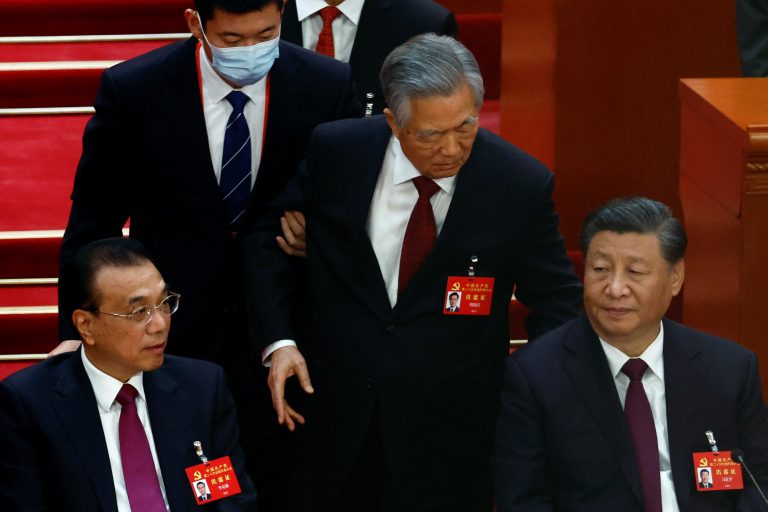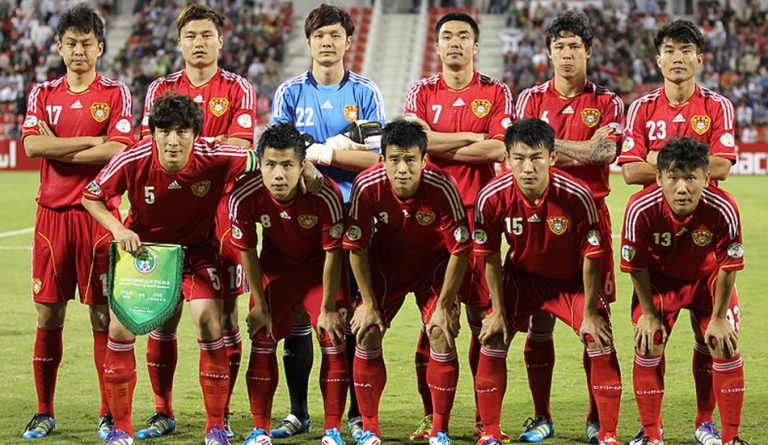Commentary
Dramatic footage showing former Chinese leader Hu Jintao being escorted by security staff out of the Communist Party’s 20th National Congress on Saturday, Oct. 22 has led to widespread speculation among China watchers that he was purged on live television by current Party head Xi Jinping.
However, the lack of other evidence pointing to Hu’s downfall, and the fact that the 79-year-old appeared on state television hours after the incident, indicate that Xi’s predecessor was not the victim of political struggle, but very likely did experience some health troubles that warranted his conspicuous departure from the Congress.
What happened?
Hu Jintao, who served as China’s president from 2002 to 2012, and concurrently also as the Chinese Communist Party (CCP) general secretary, was unexpectedly escorted out of the closing ceremony of the 20th Party Congress.
Hu, 79, Xi Jinping’s immediate predecessor, was seated to the left of Xi. He was led off the stage of the main auditorium of the Great Hall of the People in Beijing by two stewards, a Reuters witness at the congress said.
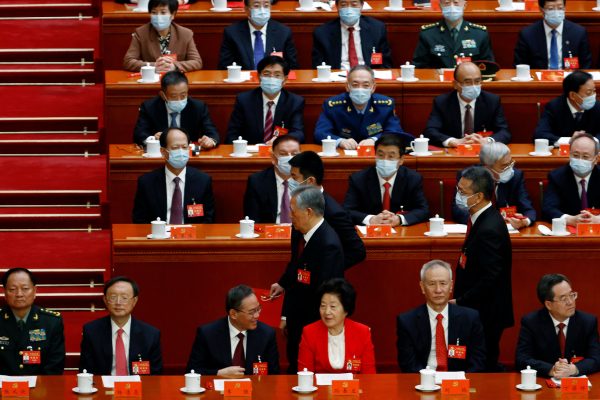
Success
You are now signed up for our newsletter
Success
Check your email to complete sign up
Video footage published by AFP showed a steward repeatedly trying to lift Hu from his seat, drawing concerned looks from officials seated nearby. Hu then put his hand on a sheet of paper placed on Xi’s folder but Xi quickly put his hand on the sheet.
China’s top legislator Li Zhanshu, seated to Hu’s right, gave the former president’s folder to a steward, wiping his own head with a cloth after Hu finally stood up.
Looking distressed, Hu appeared to resist leaving as the stewards escorted him out, turning back to his seat at one point. On his way out, he exchanged words with Xi and patted Premier Li Keqiang, seated to the right of Xi, on the shoulder.
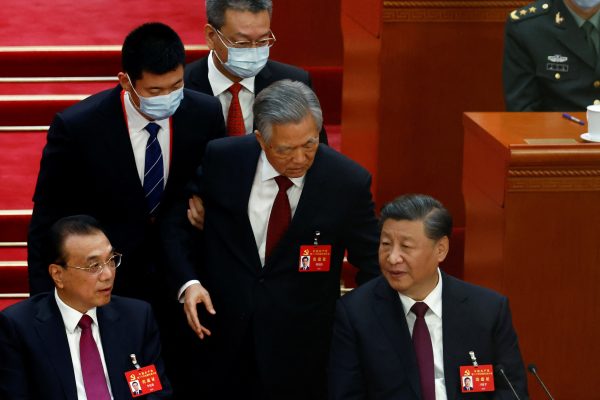
Video of the incident, highly unusual given the meticulous stage management of most such events, was widely shared on Twitter but could not be found on China’s heavily censored social media platforms. Twitter is blocked in China.
Hu had appeared slightly unsteady last Sunday when he was assisted onto the same stage for the opening ceremony of the congress.
Late on Saturday, China’s official news agency Xinhua tweeted about the incident.
“Xinhuanet reporter Liu Jiawen has learned that Hu Jintao insisted on attending the closing session of the Party’s 20th National Congress, despite the fact that he has been taking time to recuperate recently,” it said.
“When he was not feeling well during the session, his staff, for his health, accompanied him to a room next to the meeting venue for a rest. Now, he is much better,” a second tweet said.
What does it mean?
The unusual footage and photographs at an otherwise highly scripted event sparked immediate speculation about whether Hu was being intentionally snubbed, or perhaps even on his way to being purged.
“Hu’s unannounced and clumsy removal was either a cock-up—or a conspiracy,” writes China-watcher James Palmer.
Apart from a medical incident, Palmer posits two “conspiracy scenarios”: one in which Xi perceived a last-minute threat from Hu and had him removed so as to prevent trouble, and another “most disturbing possibility” — that “we just witnessed Xi deliberately and publicly humiliate his predecessor—possibly as a precursor to wielding the tools of party discipline, followed by judicial punishment, against him.”
The Atlantic published an article with the headline “Hu Jintao’s Exit Was Mysterious. Xi Jinping’s Power Play Is Not.” Appended was the subtitle “The most surprising moment at the Communist Party Congress only reinforced its larger theme,” that of Xi taking on unprecedented control over the CCP.
Such speculation might be forgiven, given that Xi Jinping has taken many steps to consolidate his personal power and pursued a decades-long anti-corruption campaign that has felled hundreds of senior officials, but there’s two problems.
First, there’s no indication that Hu has ever been a political rival to Xi, and second, there have been no other signals, either before or before the incident at the closing ceremony, to suggest that Hu is actually in danger.
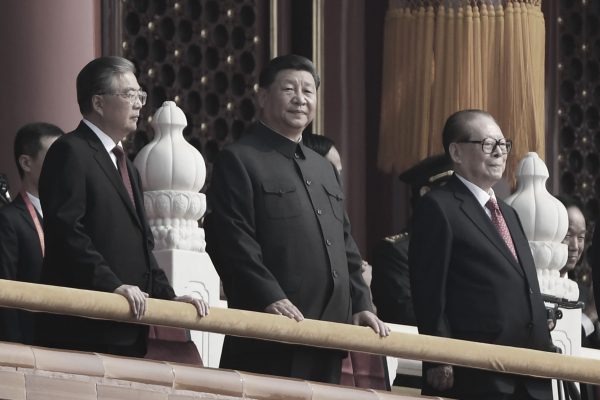
While there have been murmurings of discontent towards Xi Jinping and his lackluster, sometimes disastrous policies, none of these have come from Hu Jintao. Rather, the “opposition” to Xi’s leadership seems to be driven by the regime faction centered around Jiang Zemin, the CCP leader who preceded Hu and, despite his advanced age, “remains a force behind the scenes” according to the Wall Street Journal.
Many of the officials purged under Xi’s watch belong to the Jiang faction, which undermined Hu’s authority throughout his tenure.
According to Larry Ong, a senior analyst with political risk consultancy SinoInsider, factional struggle is unlikely a reason for why Hu was escorted out. Ong explained that would be “political suicide” for Xi to “openly sacrifice” Hu, who is an ally, not a rival, of Xi in the face of the Jiang faction.
Moreover, Hu, who could never form a significant faction while he was in office, wouldn’t have the political strength to “suddenly challenge Xi” even if he were personally inclined to do so, Ong told Vision Times.
Were there really to be a falling-out between the current and former leaders, such struggles would have been decided behind closed doors, not in ways that would damage the picture of “consensus” that the Communist Party presents to the outside world to maintain its propaganda image as a streamlined monolithic entity.
“Xi has no incentive in hurting his and the Party’s image at this crucial time,” Ong said, noting that Hu’s reappearance in an evening broadcast of the state-run China Central Television (CCTV) on Saturday “wouldn’t have happened if he were purged.”
Reuters contributed to this report.



